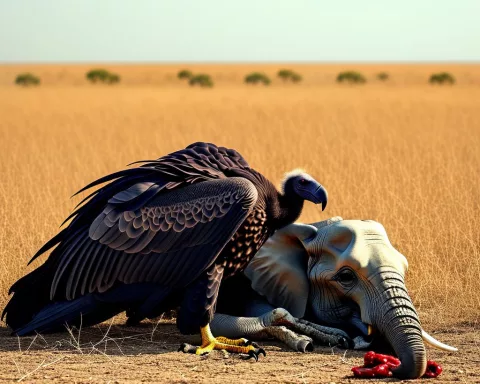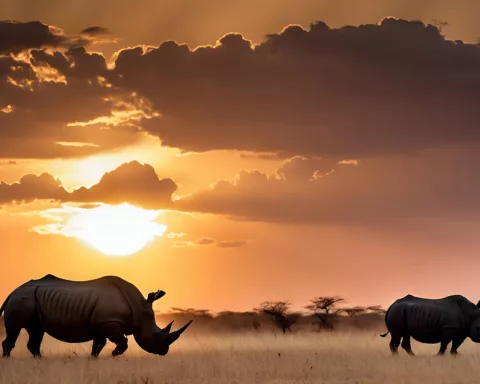Decrease in Rhino Poaching Incidents in South Africa
In the first half of 2023, South Africa recorded a decline in rhino poaching incidents with 231 rhinos killed, marking an 11% decline from the previous year. The trend revealed a shift away from Kruger National Park towards provincial and private reserves. During the same period, 143 rhinos were killed in KwaZulu-Natal Province, 46 in private nature reserves, and 143 in provincially owned reserves.
Collaboration to Tackle Rhino Poaching in South Africa
Rhino poaching remains a significant threat to the dwindling rhino population, and collaboration among various law enforcement agencies is essential in addressing this issue. The South African Police Service (SAPS), Directorate for Priority Crime Investigation (DPCI), Green Scorpions, Customs officials, Financial Intelligence Centre (FIC), and the National Prosecuting Authority are working together to combat rhino poaching. Private security also supports these efforts.
National Integrated Strategy to Combat Wildlife Trafficking in South Africa
In May 2023, the South African Cabinet approved the National Integrated Strategy to Combat Wildlife Trafficking (NISCWT) to strengthen collaboration among various stakeholders. The strategy aims to dismantle the illicit value chain of wildlife trafficking in South Africa and beyond its borders, focusing primarily on rhinos but also addressing other trafficking-threatened species such as abalone.
Conviction of Offenders
Between January and June 2023, SAPS and the National Prosecuting Authority (NPA) collaboration led to 31 offenders being convicted, with the majority of them being handed custodial sentences ranging from 16 to 39 years. The convictions were for crimes involving rhino poaching and possession of unlawful arms, ammunition, and dangerous weapons.
Role of Rangers in Supporting Prosecution
World Ranger Day celebrations highlighted the vital role of rangers in supporting the prosecution and sentencing of individuals arrested for wildlife crimes in Kruger National Park. Direct collaboration between SAPS forensic teams and SANParks Environmental Crime Investigation (ECI) ensures the collection of essential evidence and minimal contamination of crime scenes.
Measures to Combat Poaching
Measures have been implemented to combat poaching in Hluhluwe/iMfolozi game reserve in KwaZulu-Natal, including the establishment of a Tactical Operations Joint Control Centre to facilitate SAPS deployments to the reserve. The Department allocated R40 million for repairing and replacing the boundary fence around the reserve, which is regularly breached, allowing wild animals to escape to nearby communities. The National Prosecuting Authority has designated a prosecutor to facilitate rhino cases in KwaZulu-Natal, prioritizing and expediting court processes.
Holistic Ranger Services – Integrity Management Plan
Kruger National Park has developed a holistic Ranger Services – Integrity Management Plan to boost ranger morale and resilience to corruption. The plan provides services that promote ranger health and well-being, training, counseling, financial management services, and debt management. SANParks has also established an Integrity Testing System (Polygraph policy) for new recruits and anti-corruption investigations.
Collaboration to Ensure Safe Passage of Tourists
SANParks has joined forces with various stakeholders, including traditional leaders of adjoining communities, SAPS, and private security companies, to conduct constant patrols along identified hotspots, ensuring the safe passage of tourists to national parks.
Community Benefits from Tourism
South Africa’s national parks are located in poverty-stricken areas and surrounded by vulnerable communities. SANParks has held stakeholder engagements with entrepreneurs to discuss the provision of goods and services to national parks. Additionally, through Working for Water, Ecosystems and Wetlands programs, they have created 33,222 work opportunities for communities living on the outskirts of national parks.
Reporting Suspicious Activities
The public is encouraged to report suspicious activities relating to wildlife to the environmental crime hotline 0800 205 005 or the SAPS number 10111.












